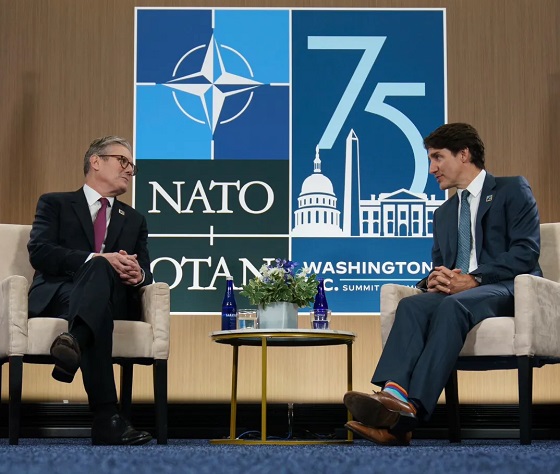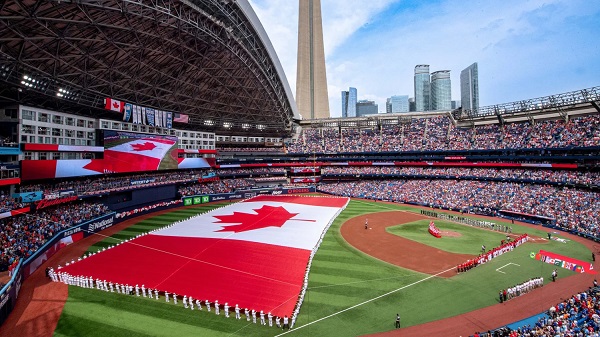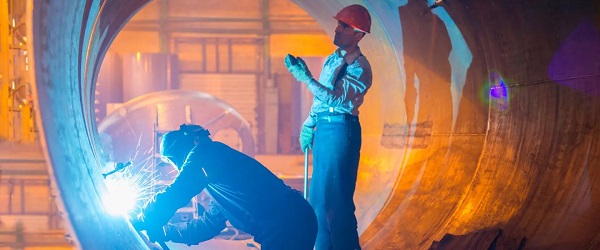2025 Federal Election
Don’t double-down on net zero again
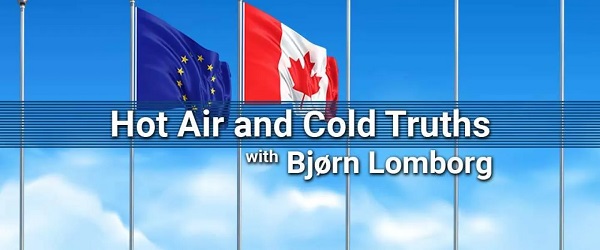
From the Fraser Institute
In the preamble to the Paris Agreement, world leaders loftily declared they would keep temperature rises “well below 2°C” and perhaps even under 1.5°C. That was never on the cards—it would have required the world’s economies to effectively come to a grinding halt.
The truth is that the “net zero” green agenda, based on massive subsidies and expensive legislation, will likely cost more than CAD$38 trillion per year across the century, making it utterly unattractive to voters in almost every nation on Earth.
When President Trump withdrew the United States from the Paris Climate Agreement for the first time in 2017, then-Canadian Prime Minister Justin Trudeau was quick to claim the moral high ground, declaring that “we will continue to work with our domestic and international partners to drive progress on one of the greatest challenges we face as a world.”
Trudeau has now been swept from the stage. On his first day back in office, President Trump signed an executive order that again begins the formal, twelve-month-long process of withdrawing the United States from the Paris Agreement.
It will be tempting for Canada to step anew into the void left by the United States. But if the goal is to make effective climate policy, whoever is Canada’s prime minister needs to avoid empty virtue signaling. It would be easy for Canada to declare again that it’ll form a “coalition of the willing” with Europe. The truth is that, just like last time, that approach would do next to nothing for the planet.
Climate summits have generated vast amounts of attention and breathless reporting giving the impression that they are crucial to the planet’s survival. Scratch the surface, and the results are far less impressive. In 2021, the world promised to phase-down coal. Since then, global coal consumption has only gone up. Virtually every summit has promised to cut emissions but they’ve increased almost every single year, and 2024 reached a new high.
Way before the Paris Agreement was inked, the Kyoto Protocol was once sold as a key part of the solution to global warming. Yet studies show it achieved virtually nothing for climate change.
In the preamble to the Paris Agreement, world leaders loftily declared they would keep temperature rises “well below 2°C” and perhaps even under 1.5°C. That was never on the cards—it would have required the world’s economies to effectively come to a grinding halt.
The truth is that the “net zero” green agenda, based on massive subsidies and expensive legislation, will likely cost more than CAD$38 trillion per year across the century, making it utterly unattractive to voters in almost every nation on Earth.
The awkward reality is that emissions from Canada, the EU, and other countries pursuing climate policies matter little in the 21st century. Canada likely only makes up about 1.5 per cent of the world’s emissions. Add together Canada’s output with that of every single country of the rich-world OECD, and this only makes up about one-fifth of global emissions this century, using the United Nations’ ‘middle of the road’ forecast. The other four-fifths of emissions come mostly from China, India and Africa.
Even if wealthy countries like Canada impoverish themselves, the result is tiny — run the UN’s standard climate model with and without Canada going net-zero in 2050, and the difference is immeasurable even in 2100. Moreover, much of the production and emissions just move to the Global South—and even less is achieved.

One good example of this is the United Kingdom, which—like Prime Minister Trudeau once did—has leaned into climate policies, suggesting it would lead the efforts for strong climate agreements. British families are paying a heavy price for their government going farther than almost any other in pursuing the climate agenda: just the inflation-adjusted electricity price, weighted across households and industry, has tripled from 2003 to 2023, mostly because of climate policies. This need not have been so: the US electricity price has remained almost unchanged over the same period.
The effect on families is devastating. Had prices stayed at 2003 levels, an average family-of-four would now be spending CAD$3,380 on electricity—which includes indirect industry costs. Instead, it now pays $9,740 per year.
Rising electricity costs make investment less attractive: European businesses pay triple US electricity costs, and nearly two-thirds of European companies say energy prices are now a major impediment to investment.
The Paris Treaty approach is fundamentally flawed. Carbon emissions continue to grow because cheap, reliable power, mostly from fossil fuels, drives economic growth. Wealthy countries like Canada, the US, and European Union members have started to cut emissions—often by shifting production elsewhere—but the rest of the world remains focused on eradicating poverty.
Poor countries will rightly reject making carbon cuts unless there is a huge flow of “climate aid” from rich nations, and want trillions of US dollars per year. That won’t happen. The new US government will not pay, and the other rich countries cannot foot the bill alone.
Without these huge transfers of wealth, China, India and many other developing countries will disavow expensive climate policies, too. This potentially leaves a rag-tag group led by a few Western European progressive nations, which can scarcely afford their own policies and have no ability to pay off everyone else.
When the United States withdrew from the Paris Agreement in 2017, Canada’s doubling down on the Paris Treaty sent the signal that it would be worthwhile spending hundreds of trillions of dollars to make no real difference to temperatures. We fool ourselves if we pretend that doing so for a second time will help the planet.
We need to realize that fixing climate change isn’t about sanctimonious summits, lofty speeches, and bluster. In coming weeks I’ll outline the case for efficient policies like innovation, adaptation and prosperity.
2025 Federal Election
Protestor Behind ‘Longest Ballot’ Chaos targeting Poilievre pontificates to Commons Committee

Lawmakers confront organizer Tomas Szuchewycz for flooding ridings with placeholder candidates, targeting Pierre Poilievre’s seat, and wasting public resources.
Szuchewycz’s most notorious move came in Carleton — the riding of Conservative Leader Pierre Poilievre, where the ballot swelled to 91 names, stretching nearly a metre and forcing Elections Canada to redesign how it printed and handled the vote. The LBC framed the stunt as a protest against Canada’s first-past-the-post electoral system. But to most voters, it looked nothing like a principled reform campaign. What they saw was an effort aimed squarely at Poilievre, meant to bury his name among a wall of nobodies and turn the vote into a farce.
Elections Canada had to scramble to manage the chaos: printing extra‑long ballots, re‑training workers, and creating a last‑minute write‑in workaround in Battle River–Crowfoot to keep ballots usable. Seniors and disabled voters complained about the physical size and complexity of the ballot; poll workers faced new logistical headaches; public money was wasted.
At Tuesday’s hearing, Szuchewycz showed no contrition and offered no practical alternative to the system he had tried to upend. Instead, he accused MPs of having a “conflict of interest” in writing election law and demanded that power be handed to an undefined “permanent, non‑partisan body” — without explaining who would select it, how it would operate, or how it would be accountable to Canadians.
The LBC, whose actions led to metre-long ballots in ridings like Carleton (91 candidates) and Battle River–Crowfoot (86), claims to oppose Canada’s first-past-the-post system. But when asked how his proposed independent reform body would be formed, selected, or held accountable, Szuchewycz had no answers.
Conservative MP Michael Cooper led the charge, accusing Szuchewycz of overseeing a signature-harvesting scheme that involved electors signing blank nomination forms—potentially in violation of the Canada Elections Act. He tabled a January 2024 tweet and an August 2024 YouTube video showing organizers gathering signatures under the claim that candidate names would be “filled in later.”
Szuchewycz denied the accusation, claiming nomination papers had either candidate names or the phrase “all candidates” filled in. But when he tried to discredit Cooper’s evidence by calling it “AI-generated,” the committee chair issued a warning for casting doubt on the authenticity of a Member’s documents without basis. The comment was withdrawn under pressure.
Still, Cooper was unsatisfied, warning Szuchewycz that misleading Parliament could amount to contempt.
Other witnesses—experts and former elected officials—were equally critical of the LBC’s tactics. Dr. Lori Turnbull, a professor at Dalhousie University, called the stunt “undesirable” and a “waste of resources,” though she praised Elections Canada for adapting quickly by allowing a write-in workaround in Battle River–Crowfoot to avoid printing a literal wall of names.
Professor Peter Loewen of Cornell University added that the LBC’s ballot-stuffing “violates the spirit” of competitive democracy and burdens front-line elections staff with unnecessary logistical chaos. He warned that a third-party group acting like a political party without oversight was a loophole that needed closing.
Meanwhile, former Liberal MP Louis-Philippe Sauvé described the real-world toll of the stunt: longer lineups, stressed poll workers, and accessibility hurdles for elderly and visually impaired voters.
In stark contrast to these grounded critiques, Szuchewycz’s testimony revolved around vague accusations of “conflict of interest” by MPs and a call to remove Parliament from electoral reform altogether. No constitutional roadmap. No governance model. No practical enforcement mechanism.
At the end of the day, what Tomas Szuchewycz has done isn’t just a stunt, it’s an insult. He claims Canadians “know what he’s protesting,” but let’s be honest: most voters had no clue this was about electoral reform. What they saw was a campaign to flood ballots with nonsense names in key ridings, especially against the Leader of the Opposition, and create chaos for chaos’s sake.
The takeaway wasn’t a conversation about democracy. It was a spectacle, and one that mocked the very voters he pretends to represent. Lets be clear, This wasn’t activism, it was ego masquerading as principle. And it reeked of entitlement.
Tomas Szuchewycz is the embodiment of unchecked privilege: a man who hijacked our electoral process, wasted taxpayer dollars, and offered nothing in return but smug contempt for the very democracy that gave him the space to pull his stunt.
He claims Canadians understood his message. They didn’t. Most people saw a confusing mess, an attack on the Opposition Leader, and a joke made at the expense of voters, poll workers, and the electoral system itself.
So yes — reform is coming. And it can’t come soon enough.
Parliament must not just close the loopholes it should make sure that when someone deliberately sabotages the integrity of an election, they are held accountable, including being forced to repay the public for the cost of their chaos.
Because in a democracy, you have the right to protest.
But not the right to turn an election into a farce on the public’s dime.
Subscribe to The Opposition with Dan Knight
Invite your friends and earn rewards
2025 Federal Election
Post election report indicates Canadian elections are becoming harder to secure

Chief Electoral Officer Stéphane Perrault highlights strong participation and secure voting, but admits minority politics, rising costs, and administrative pressures are testing the system’s limits.
Monday in Ottawa, Stéphane Perrault, Canada’s Chief Electoral Officer, delivered a long press conference on April’s federal election. It was supposed to be a victory lap, record turnout, record early voting, a secure process. But if you listened closely, you heard something else: an admission that Canada’s election machinery is faltering, stretched thin by a system politicians refuse to fix.
Perrault touted the highest turnout in 30 years, 69 percent of eligible voters, nearly 20 million Canadians. Almost half of those ballots were cast before election day, a dramatic shift in how citizens take part in democracy.
“Twenty years ago, less than 7% voted early. This year, nearly half did,” Perrault told reporters. “Our system may have reached its limit.”
That’s the core problem. The system was built for one decisive day, not weeks of advance voting spread across campuses, long-term care homes, mail-in ballots, and local Elections Canada offices. It’s no longer a single event; it’s an extended process that stretches the capacity of staff, polling locations, and administration.
Perrault admitted bluntly that the 36-day writ period, the time between when an election is called and when the vote happens, may no longer be workable. “If we don’t have a fixed date election, the current time frame does not allow for the kind of service preparations that is required,” he said.
And this is where politics collides with logistics. Canada is once again under a minority government, which means an election can be triggered at almost any moment. A non-confidence vote in the House of Commons, where opposition parties withdraw support from the government, can bring down Parliament in an instant. That’s not a flaw in the system; it’s how parliamentary democracy works. But it leaves Elections Canada on permanent standby, forced to prepare for a snap election without knowing when the writ will drop.
The result? Sixty percent of voter information cards were mailed late this year because Elections Canada couldn’t finalize leases for polling stations on time. Imagine that, more than half the country got their voting information delayed because the system is clogged. And that’s when everything is supposedly working.
The April election cost an estimated $570 million, almost identical to 2021 in today’s dollars. But here’s the kicker: Elections Canada also spent $203 million just to stay ready during three years of minority Parliament. That’s not democracy on the cheap. That’s bureaucracy on retainer.
Perrault admitted as much: “We had a much longer readiness period. That’s the reality of minority governments.”
No Foreign Interference… But Plenty of ‘Misinformation’
Canada’s top election official wanted to make something perfectly clear: “There were no acts of foreign interference targeting the administration of the electoral process.” That’s the line. And it’s a good one… reassuring, simple, the kind of phrase meant to make headlines and calm nerves.
But listen closely to the wording. He didn’t say there was no interference at all. He said none of it targeted the administration of the vote. Which raises the obvious question: what interference did occur, and who was behind it?
Perrault admitted there was “more volume than ever” of misinformation circulating during the 2025 election. He listed the greatest hits: rumors that Elections Canada gives voters pencils so ballots can be erased, or claims that non-citizens were voting. These are hardly new — they’ve appeared in the U.S. and in Europe too. The difference, he said, is scale. In 2025, Canadians saw those narratives across more channels, more platforms, more communities than ever before.
This is where things get interesting. Because the way Perrault framed it wasn’t that a rogue actor or a foreign intelligence service was pushing disinformation. He was blunt: this was a domestic problem as much as anything else. In his words, “whether foreign or not,” manipulation of information poses the “single biggest risk to our democracy.”
Perrault insists the real danger isn’t foreign hackers or ballot-stuffing but Canadians themselves, ordinary people raising questions online. “Information manipulation, whether foreign or not, poses the single biggest risk to our democracy,” he said.
Well, maybe he should look in the mirror. If Canadians are skeptical of the system, maybe it’s because the people running it haven’t done enough to earn their trust. It took years for Ottawa to even acknowledge the obvious , that foreign actors were meddling in our politics long before this election. Endless commissions and closed-door reports later, we’re told to stop asking questions and accept that everything is secure.
Meanwhile, what gets fast-tracked? Not a comprehensive fix to protect our democracy, but a criminal investigation into a journalist. Keean Bexte, co-founder of JUNO News, is facing prosecution under Section 91(1) of the Canada Elections Act for his reporting on allegations against Liberal candidate Thomas Keeper. The maximum penalty? A $50,000 fine and up to five years in prison. His reporting, incidentally, was sourced, corroborated, and so credible that the Liberal Party quietly dropped Keeper from its candidate list.
If people doubt the system, it isn’t because they’re gullible or “misinformed.” It’s because the government has treated transparency as an afterthought and accountability as an inconvenience. And Perrault knows it. Canadians aren’t children to be scolded for asking questions, they’re citizens who expect straight answers.
But instead of fixing the cracks in the system, Ottawa points the finger at the public. Instead of rebuilding trust, they prosecute journalists.
You don’t restore faith in democracy by threatening reporters with five years in prison. You do it by showing, quickly and openly, that elections are beyond reproach. Until then, spare us the lectures about “misinformation.” Canadians can see exactly where the problem lies, and it isn’t with them.
The Takeaway
Of course, they’re patting themselves on the back. Record turnout, no servers hacked, the trains ran mostly on time. Fine. But what they don’t want to admit is that the system barely held together. It was propped up by 230,000 temporary workers, leases signed at the last minute, and hundreds of millions spent just to keep the lights on. That’s not stability. That’s triage.
And then there’s the lecturing tone. Perrault tells us the real threat isn’t incompetence in Ottawa, it’s you, Canadians “sharing misinformation.” Excuse me? Canadians asking questions about their elections aren’t a threat to democracy, they are democracy. If the government can’t handle people poking holes in its story, maybe the problem isn’t the questions, maybe it’s the answers.
So yes, on paper, the 2025 election looked like a triumph. But listen closely and you hear the sound of a system cracking under pressure, led by officials more interested in controlling the narrative than earning your trust. And when the people running your elections think the real danger is the voters themselves? That’s when you know the elastic isn’t just stretched. It’s about to snap.
Subscribe to The Opposition with Dan Knight .
For the full experience, upgrade your subscription.
-
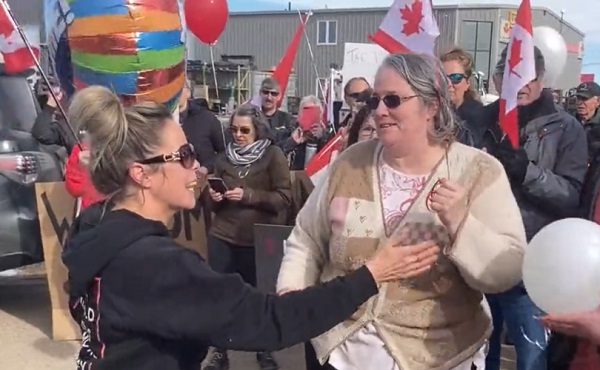
 COVID-192 days ago
COVID-192 days agoTamara Lich says she has no ‘remorse,’ no reason to apologize for leading Freedom Convoy
-

 Crime2 days ago
Crime2 days agoCanada’s safety minister says he has not met with any members of damaged or destroyed churches
-
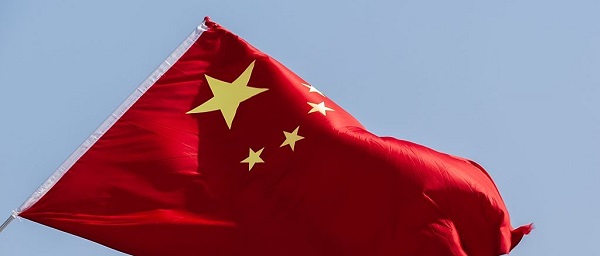
 Business2 days ago
Business2 days agoTrump Warns Beijing Of ‘Countermeasures’ As China Tightens Grip On Critical Resources
-

 International2 days ago
International2 days agoTrump gets an honourable mention: Nobel winner dedicates peace prize to Trump
-

 Business1 day ago
Business1 day agoThe Grocery Greed Myth
-

 Business1 day ago
Business1 day agoCarney government plans to muddy the fiscal waters in upcoming budget
-

 Business1 day ago
Business1 day agoTax filing announcement shows consultation was a sham
-

 Frontier Centre for Public Policy5 hours ago
Frontier Centre for Public Policy5 hours agoCanada’s Democracy Is Running On Fumes






